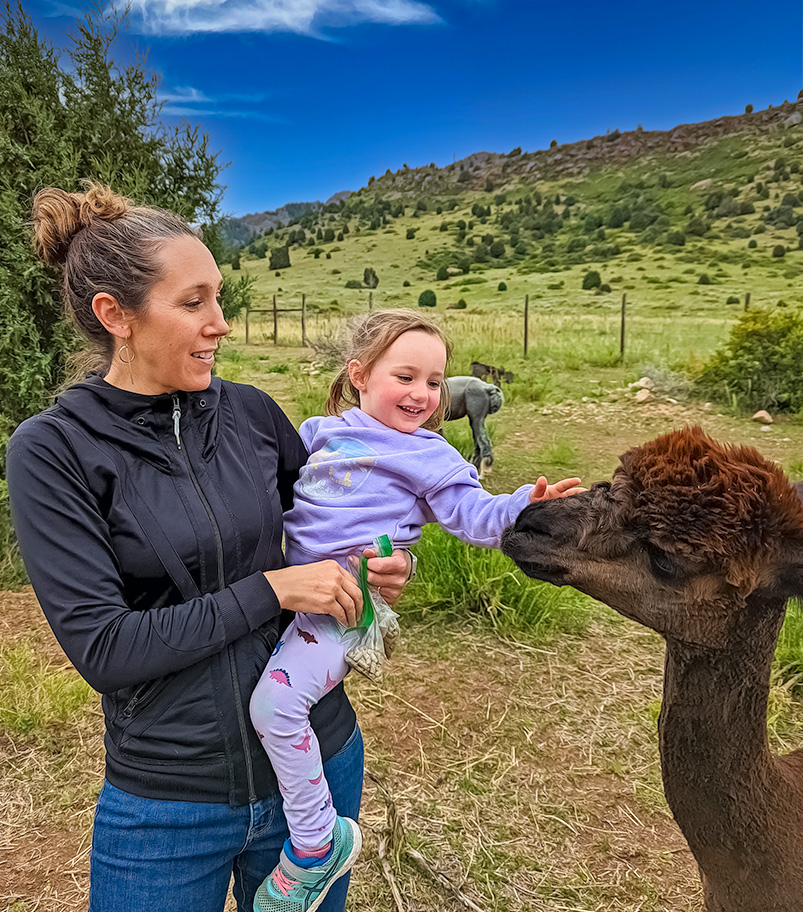
Colorado alpaca adventures 2023
Colorado alpaca adventure tours right now: Alpacas hum; they make a sound like “mmm,” according to Alpaca Ventures. However, they also shriek when danger is present, and make a sound similar to a “wark” noise when excited. Fighting males scream, making a warbling bird-like cry. Alpacas in a herd all use the same area as a bathroom instead of defecating in random areas like many animals do. This behavior helps control parasites, according to the FAO. Males often have cleaner dung piles than females, according to Alpaca Ventures. Females tend to stand in a line and all go at once. Find extra info on alpaca adventure tours in Colorado.
All members of your group will have the opportunity to participate in a fully interactive experience. It typically lasts around 1 hour and 30 minutes. Its environment is ideal for nature lovers : Most people who live in Colorado love the outdoors because the state offers a little bit of everything. Even if you’re just visiting for the weekend, you can embrace all that nature has to offer. An alpaca ranch offers stunning scenery and a relaxing atmosphere where you can take in the fresh air. When you go behind the scenes on the ranch, you learn about much more than just the animals. You have the opportunity to talk about the economy, trade, production, local handmade goods, and so much more.
For many years, zoologists assumed alpacas and llamas had descended from guanacos, and they were classified in the genus Lama. However, in a 2001 paper titled “Genetic analysis reveals the wild ancestors of the llama and the alpaca” in the journal Proceeding of the Royal Society B, researchers showed there is “high genetic similarity” between the alpaca and the vicuña, and between the llama and the guanaco. They recommended that the alpaca be reclassified as Vicugna pacos.
How much space does it take to raise an alpaca? Alpacas are environmentally friendly and require less pasture and food compared to other livestock. Stocking density impacts the health of the animal, so owners are encouraged to carefully assess their space. Vegetation, access to food and water, and shelter are some factors that influence the amount of space needed. Consult with your local agriculture authorities and breeders for specific recommendations for your area. Are alpacas clean animals? Yes, they are much cleaner than most livestock. Alpacas have a minimal aroma and tend to attract fewer flies in the summertime than other forms of livestock. Alpacas often defecate in communal dung piles. There may be three or four of these areas in a pasture. This makes for easy clean-up, reduced opportunity for parasites, and better overall hygiene in the herd.
Do alpacas make noise? Alpacas are very quiet, docile animals that make a minimal amount of sound. They do make a humming sound as a means of communication or to express concern or stress. Most communication between alpacas is nonverbal. Occasionally you will hear a shrill “alarm call,” which usually means they have spotted something of concern nearby, and they are warning others in the herd. The concern may be a predator, or may be something they are not familiar with, like a cow or horse in a neighboring field. Male alpacas also “serenade” females during breeding with a guttural, throaty sound called “orgling.”
Still, you should always remember to treat alpacas with space and respect. Alpacas don’t like being grabbed or held, and they are often particularly sensitive to being touched on the head. Instead, allow them to approach you at their own pace. This often results in a much more rewarding and affectionate response. If you’re looking for an age-appropriate experience for the entire family, you’ve met your match. Interacting with alpacas is safe for everyone from little kids to elderly members of your crew. There are no age restrictions — kids 2 and under are free. Discover extra details on https://meetalpacas.com/.
Can alpacas thrive in locations with very hot or very cold climates? Generally, yes. Alpacas are amazingly resilient animals and have adapted successfully to the extremes of both very hot and very cold climates. In hot, humid climates, alpaca owners need to take extra precautions to make sure that the alpacas do not suffer from heat stress. These include shearing fleeces early in the year, providing fans and ventilation in the barn, and offering cool fresh water for drinking.